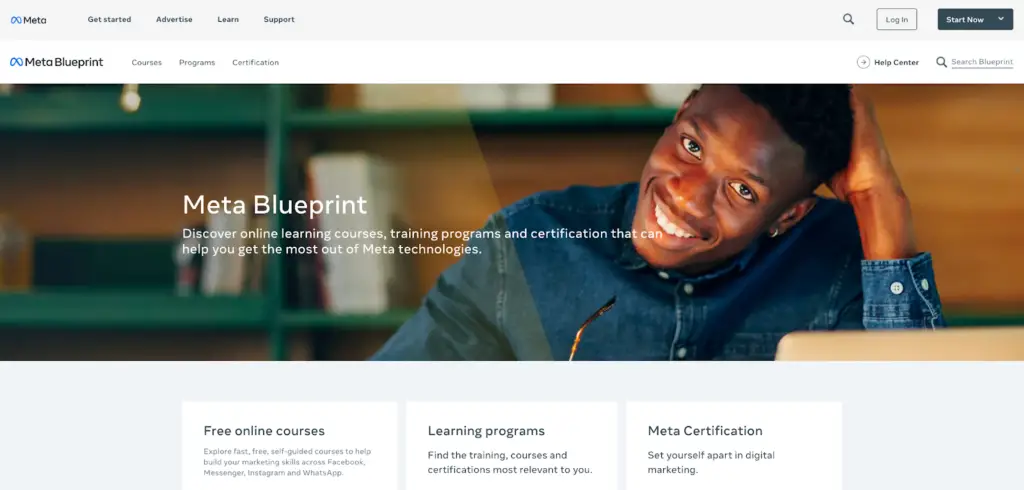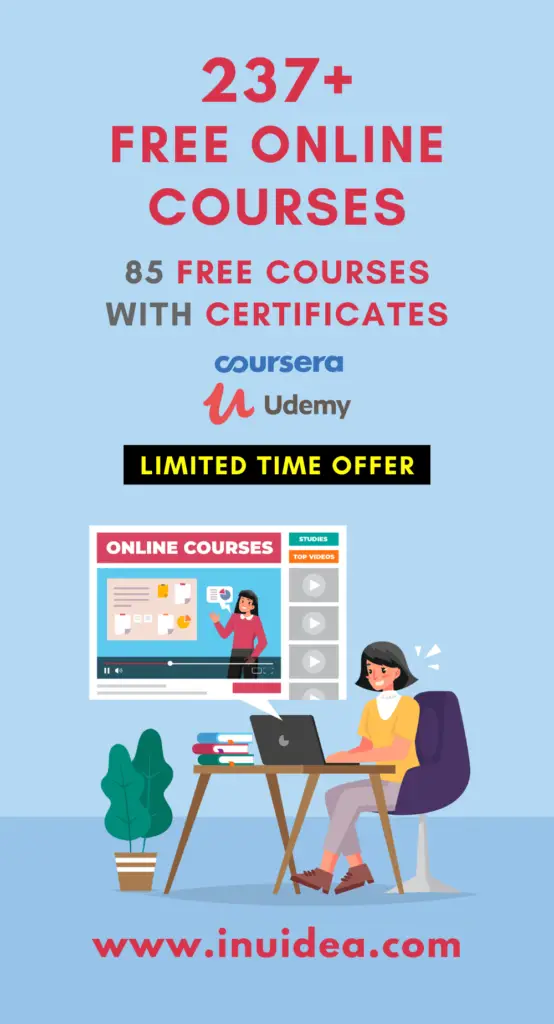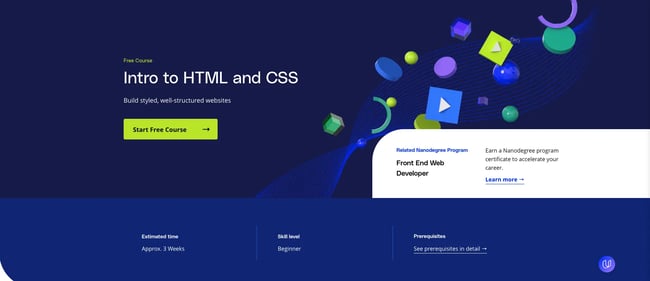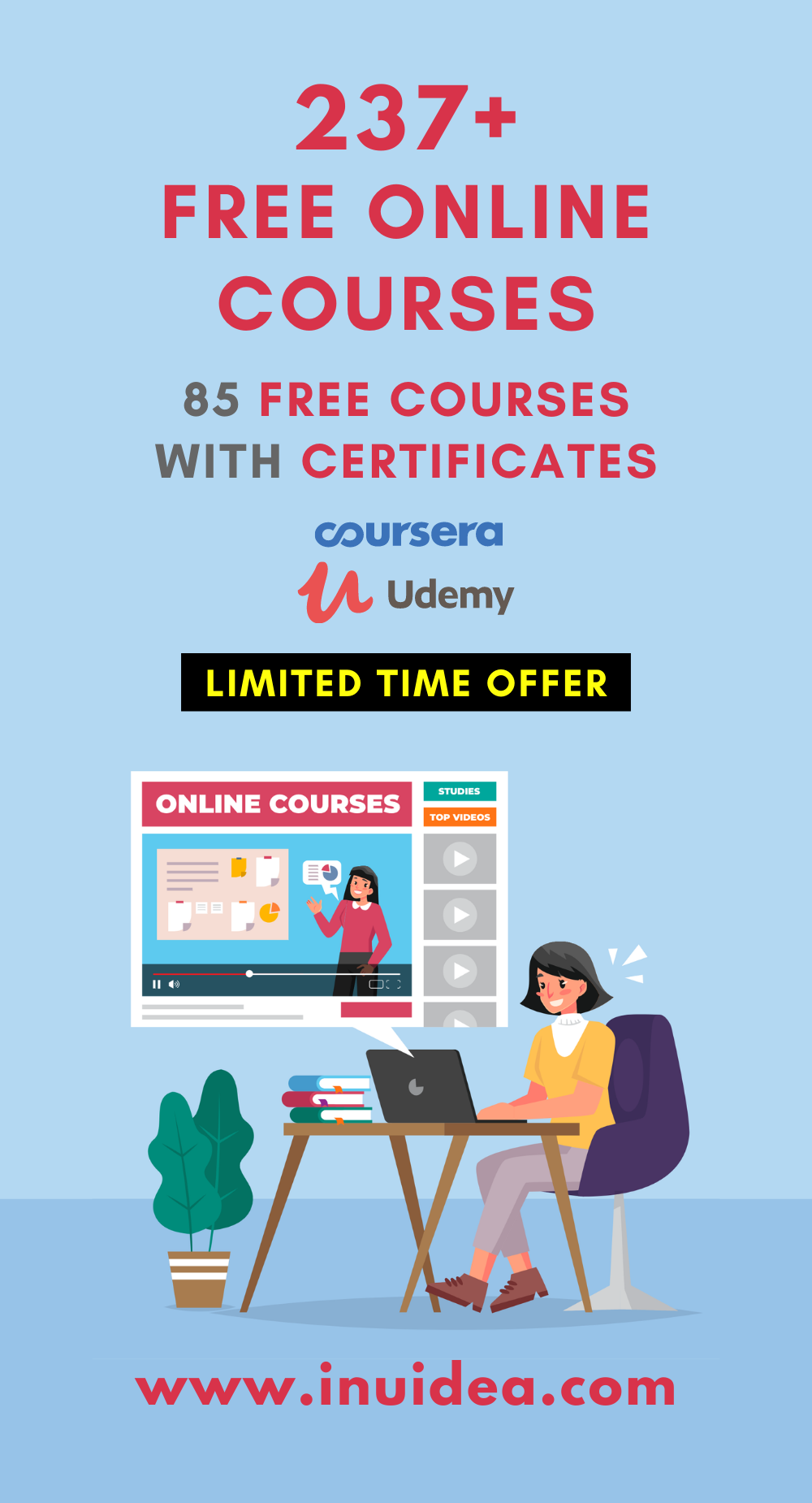So, have you ever wanted to learn something new but didn’t want to shell out a ton of money for a course? Yeah, me too! That’s why I started exploring free online learning resources. And let me tell you, there’s a whole world of knowledge waiting for you out there – and it won’t cost you a dime. In this article, I’m going to delve into the world of free online courses and show you how it can open up a whole new world of possibilities for your personal and professional growth.
Now, when I first started my quest for free online courses, I was blown away by the sheer number of platforms available. From popular ones like Coursera and edX to lesser-known gems like Khan Academy and Udemy, the options seemed endless. Each platform offers courses on a wide range of subjects, from computer programming to photography, business management to foreign languages. And the best part? Most of these courses are created and taught by professionals in their respective fields, so you know you’re getting quality content.
But wait, there’s more! Not only are there platforms offering free courses, but many universities and organizations also provide them. Some of the most prestigious institutions, like Harvard and MIT, have made their courses available online for anyone to access. So, whether you want to learn about quantum mechanics or art history, you can do it all from the comfort of your own home, and did I mention it’s absolutely free?
So, if you’re like me and love the idea of expanding your knowledge without breaking the bank, then buckle up and get ready to dive into the world of free online courses. In the upcoming article, we’ll explore some of the best platforms and resources available, how to choose the right course for you, and some tips and tricks for making the most of your online learning experience. Trust me, you won’t want to miss it!
Discovering Free Online Courses
In today’s digital age, the internet has revolutionized the way we learn. Gone are the days when higher education meant being confined to the walls of a traditional classroom. With the rise of free online courses, learning has become accessible to anyone with an internet connection. These online platforms have democratized education, allowing individuals from all walks of life to enhance their knowledge and skills without the burden of hefty tuition fees.
The Benefits of Online Education
There are numerous benefits to pursuing online education. One of the most significant advantages is the flexibility it offers. Unlike traditional classroom settings, online courses allow learners to study at their own pace and in their own time. This flexibility is especially appealing to those who have other commitments, such as full-time jobs or family responsibilities. The ability to access course materials and lectures at any time provides learners with the freedom to design their own learning schedule.
Another benefit of online education is the wide variety of courses available. From language learning to computer science and business courses, there is something for everyone. This diversity allows individuals to explore their interests and passions, enabling them to acquire new knowledge in their chosen fields or even delve into completely new subject areas.
The Rise of Free Online Learning Platforms
Over the past decade, there has been a significant increase in the number of free online learning platforms. These platforms serve as hubs for educational content, offering a vast array of courses from reputable institutions and organizations. One of the pioneers in this field is Coursera, an online platform that partners with top universities to provide courses on a wide range of subjects. Other popular platforms include edX, Udemy, and Khan Academy.
Free online learning platforms have gained popularity due to their affordability and accessibility. The cost of traditional education can be a major barrier for many individuals, but with free online courses, learners can acquire knowledge without incurring any financial burden. Additionally, these platforms can be accessed from anywhere in the world, making education available to individuals who may not have access to quality education in their local communities.
Exploring Different Types of Free Online Courses
As mentioned earlier, free online courses cover a wide range of subjects. Let’s delve into some of the most popular categories of online courses.
Language Learning Courses
Learning a new language opens up a world of opportunities. Whether you want to travel, connect with people from different cultures, or enhance your employability, language learning courses can help you achieve your goals. Platforms like Duolingo and Babbel offer interactive and engaging language courses that cater to different proficiency levels. With these courses, you can learn popular languages such as Spanish, French, Mandarin, and more.
Computer Science and IT Courses
In our increasingly digital world, proficiency in computer science and information technology is highly valued. Free online platforms like Codecademy and Udacity offer courses ranging from beginner-level programming to advanced data science and artificial intelligence. These courses provide learners with essential skills for the modern job market, allowing them to pursue careers in software development, web design, cybersecurity, and more.
Business and Finance Courses
For those interested in acquiring business and finance knowledge, free online courses are a great way to get started. Platforms like Coursera and edX offer courses on topics such as entrepreneurship, marketing, financial analysis, and supply chain management. These courses provide learners with valuable insights into various aspects of the business world, equipping them with the skills needed to succeed in the corporate landscape.
Arts and Design Courses
If you have a passion for creativity, there are numerous free online courses available in the field of arts and design. Platforms like Skillshare and CreativeLive offer courses on graphic design, photography, painting, and more. These courses not only develop technical skills but also nurture artistic expression, allowing individuals to explore their creative potential.
Health and Wellness Courses
Personal well-being is a priority for many individuals, and free online courses can help in this regard. Platforms like FutureLearn and Udemy offer courses on mental health, nutrition, yoga, and mindfulness. These courses provide learners with valuable insights and strategies for maintaining a healthy lifestyle, both physically and mentally.
Finding the Best Free Online Course Platforms
With the plethora of free online course platforms available, it can be overwhelming to choose the right one for your needs. Here are some factors to consider when selecting a platform:
Popular Online Learning Platforms
While there are numerous platforms to choose from, some have established themselves as leaders in the online learning space. Coursera, with its wide range of courses from renowned institutions, is a popular choice among learners. edX, known for its partnership with prestigious universities, offers a vast library of courses as well. Udemy, on the other hand, focuses on practical skills and is known for its affordability. Researching and exploring these popular platforms can help you make an informed decision.
Factors to Consider When Choosing a Platform
When selecting a platform, it is important to consider factors such as course quality, instructor credibility, learner reviews, and support resources. Before enrolling in a course, read through the course description, instructor profile, and learner reviews to gauge the quality of the course. Additionally, ensure that the platform offers adequate support resources, such as discussion forums or live chat, to assist you throughout your learning journey.
Tips for Effective Learning in Online Courses
While online courses offer flexibility and convenience, effective learning requires discipline and active engagement. Here are some tips to make the most out of your free online courses:
Setting Realistic Goals
Before starting a course, set specific and achievable goals for yourself. Whether it’s completing a certain number of modules per week or mastering a particular skill, setting goals will help you stay motivated and focused throughout the course.
Time Management Techniques
With the freedom to study at your own pace, it’s important to develop effective time management techniques. Create a study schedule that suits your daily routine and allocate dedicated time for learning. Avoid procrastination and treat your online course as you would a traditional classroom course.
Effective Note-Taking Strategies
Taking notes during online lectures or while studying course materials is a great way to reinforce your understanding and retention of the content. Develop a note-taking system that works for you, whether it’s using digital tools or pen and paper. Summarize key points, highlight important concepts, and create flashcards to review later.
Engaging in Online Discussions
Many online courses offer discussion forums where learners can interact with their peers and instructors. Take advantage of these opportunities to ask questions, share insights, and engage in meaningful discussions. Collaborating with fellow learners can enhance your understanding of the course materials and provide different perspectives on the subject matter.

Overcoming Challenges in Free Online Courses
While free online courses offer numerous benefits, they also come with their own set of challenges. Here are some common challenges learners may face and strategies for overcoming them:
Maintaining Discipline and Motivation
Without the structure of traditional classroom settings, it can be challenging to stay disciplined and motivated throughout the course. Set specific goals, create a study routine, and reward yourself for achieving milestones. Additionally, join online communities or study groups related to the course to foster a sense of accountability and support.
Dealing with Technical Issues
Technical issues are bound to arise when studying online. Slow internet connections, software compatibility issues, or hardware malfunctions can disrupt your learning experience. Stay patient and try troubleshooting techniques such as restarting your device, clearing browser cache, or reaching out to the platform’s technical support team for assistance.
Managing Procrastination
With the flexibility of online learning, it’s easy to fall into the trap of procrastination. To combat this, break down your course into smaller tasks and set deadlines for each task. Hold yourself accountable and commit to completing the tasks within the set timeframe. Engaging in active learning techniques, such as note-taking and online discussions, can also help combat procrastination.
Maximizing the Value of Free Online Courses
While the knowledge gained from free online courses is valuable in itself, there are additional ways to maximize the value of your learning experience.
Earning Certificates and Credentials
Many online platforms offer the option to earn certificates upon completion of a course. These certificates can add credibility to your resume and showcase your commitment to continuous learning. Displaying these certificates on professional networking platforms, such as LinkedIn, can enhance your professional profile and attract potential employers.
Networking Opportunities
Online courses often provide opportunities for learners to connect with instructors and fellow learners. Take advantage of these networking opportunities by participating in online discussions, joining course-related forums, or attending virtual events organized by the platform or course instructors. Building a network of professionals in your chosen field can open doors to career opportunities and collaborations.
Applying Course Knowledge in Real-Life Situations
One of the best ways to solidify your understanding of course material is to apply it to real-life situations. Look for opportunities to implement what you’ve learned in your daily life, workplace, or personal projects. Apply acquired skills and knowledge to solve problems or tackle challenges, and reflect on the outcomes to reinforce your learning.

Exploring Additional Resources for Free Online Learning
In addition to free online courses, there are several other resources available to enhance your online learning experience.
Open Educational Resources (OER)
Open Educational Resources (OER) are freely accessible learning materials that can include textbooks, lecture notes, and multimedia content. Platforms like OpenStax and OER Commons provide a vast collection of OER across various subjects. These resources can supplement your online courses and offer additional perspectives and knowledge on the topics you are studying.
Online Tutorials and Video Lectures
YouTube and other video-sharing platforms are treasure troves of online tutorials and video lectures. Many educators and experts create and upload educational content on these platforms, covering a wide range of subjects. Whether you need a visual demonstration of a complex concept or want to explore a specific topic in-depth, online tutorials and video lectures can provide valuable insights and learning opportunities.
Virtual Learning Communities
Virtual learning communities, such as forums or social media groups dedicated to specific subjects, can be invaluable resources for online learners. Joining these communities allows you to connect with like-minded individuals, ask questions, and share resources and insights. Engaging actively in these communities can enhance your learning experience and provide opportunities for collaboration and knowledge exchange.
Staying Up-to-Date with the Latest Free Online Courses
With new courses being added regularly, it’s essential to stay updated with the latest offerings in the world of free online courses.
Following Online Learning Blogs and Websites
Blogs and websites dedicated to online learning provide valuable information about new courses, platform updates, and tips for effective online learning. Follow reputable blogs such as eLearning Industry, The eLearning Coach, and EdSurge to stay informed about the latest trends and developments in online education.
Signing up for Course Newsletters
Many online platforms and institutions send out newsletters featuring their latest course offerings. Signing up for these newsletters ensures that you receive timely updates on new courses, discounts, and promotions. Make sure to check your email regularly and explore the courses that interest you.

Impact of Free Online Courses on Career Advancement
Free online courses have the potential to significantly impact career advancement by providing opportunities for upskilling and reskilling.
Building a Strong Online Portfolio
With the certificates earned from online courses, you can build a strong online portfolio highlighting your skills and expertise. Platforms like LinkedIn and GitHub allow you to showcase your certificates, projects, and achievements, making you more visible to potential employers or clients. A robust online portfolio can set you apart and increase your chances of career advancement.
Earning Microcredentials for Skill Enhancement
Microcredentials are a form of digital certification that verify specific skills or knowledge gained from completing short courses or modules. Many online platforms offer microcredential programs that allow learners to gain specialized skills in a shorter timeframe. These microcredentials can be displayed on your resume or online platforms, providing evidence of your expertise and dedication to continuous learning.
Incorporating Free Online Courses into a Frugal Lifestyle
Free online courses align perfectly with a frugal lifestyle, offering knowledge and skill enhancement without financial burden.
Saving Money on Education Expenses
Traditional education can be expensive, with tuition fees, textbooks, and accommodation costs adding up. Free online courses eliminate these expenses, allowing you to acquire knowledge and skills without going into debt or straining your finances. By opting for free online courses, you can invest your financial resources in other areas of your life or save for future goals.
Enhancing Knowledge and Skills without Financial Burden
A frugal lifestyle emphasizes making the most out of resources while keeping expenses low. Free online courses provide an avenue for continuous learning and personal development without incurring any financial burden. You can explore new hobbies, enhance your knowledge in your chosen field, or acquire new skills at no cost, aligning perfectly with a frugal lifestyle.

Finding Free Online Courses for Specific Interests
Free online courses cater to a wide range of interests and hobbies. Whether you have niche interests or want to explore new subjects, there are courses available for you.
Exploring Niche Subjects
While popular subjects like programming and finance dominate online learning platforms, there are also courses available on niche subjects. Whether you have a passion for ancient history, astrology, or sustainable gardening, specialized platforms like Skillshare and Udemy offer courses on a vast range of subjects, including niche interests.
Catering to Personal Interests and Hobbies
Online courses are not limited to academic or professional learning. They also provide opportunities to explore personal interests and hobbies. Platforms like MasterClass and Skillshare offer courses taught by experts in various fields, including cooking, photography, music, and writing. These courses allow you to indulge in your passions and acquire new skills in your leisure time.
Benefits of Free Online Courses for Professional Development
Free online courses play a crucial role in professional development, offering opportunities for upskilling and career advancement.
Upskilling and Reskilling Opportunities
With advancements in technology and changes in the job market, upskilling and reskilling have become essential for career growth. Free online courses offer a wide array of opportunities to acquire new skills or enhance existing ones. Whether it’s learning a new programming language, mastering digital marketing strategies, or developing leadership skills, online courses can help you stay relevant in your field.
Enhancing Employability
In a competitive job market, having a diverse skill set can enhance your employability. Free online courses allow you to broaden your knowledge and acquire new skills, making you more marketable to potential employers. Adding relevant courses to your resume demonstrates your dedication to professional growth and sets you apart from other candidates.
Advancing in Current Job Positions
Free online courses not only prepare you for new career opportunities but also help you advance in your current job position. By acquiring new skills and knowledge, you can take on more responsibilities, become more efficient in your current role, and increase your chances of getting promoted. Employers value continuous learning, and online courses can showcase your commitment to self-improvement.
Examining the Future of Free Online Courses
The future of free online courses looks promising, with technological advancements and their impact on traditional learning institutions.
Technological Advancements in Online Education
Technological advancements continue to reshape the landscape of online education. Artificial intelligence, virtual reality, and augmented reality are being integrated into online courses, providing immersive and interactive learning experiences. Adaptive learning algorithms personalize the learning journey, tailoring course content to individual needs and preferences. These advancements are making online courses more engaging and effective, enhancing the learning experience for learners worldwide.
Implications for Traditional Learning Institutions
The rise of free online courses has had significant implications for traditional learning institutions. Universities and colleges are increasingly offering online courses and incorporating online platforms into their curricula. This blended approach allows institutions to reach a larger audience, offer more flexible options for learners, and adapt to the changing educational landscape. While traditional learning institutions continue to hold value, the integration of online courses is transforming the higher education landscape.
Conclusion
Free online courses have revolutionized education, making knowledge and skill enhancement accessible to all. The flexibility, affordability, and wide range of courses available on online platforms have opened up a world of learning opportunities. By incorporating free online courses into their lives, individuals can enhance their professional prospects, pursue their passions, and continue their personal development. Whether you want to learn a new language, acquire technical skills, or explore niche subjects, free online courses provide the means to discover and expand your knowledge. Embrace the world of free online education and embark on a journey of lifelong learning.

